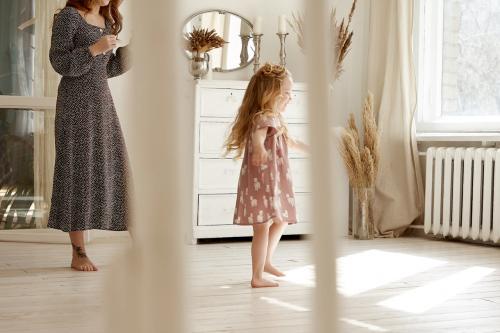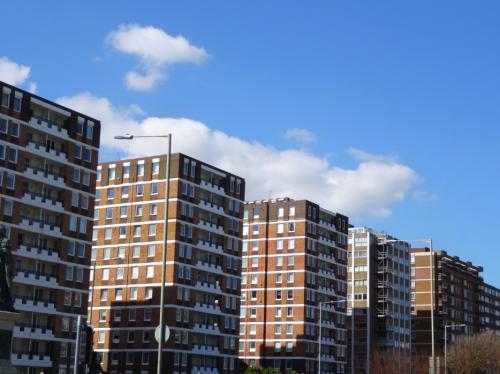When is the Best Time to Replace Your HVAC System?

If you're a homeowner,
chances are you rely on your HVAC system to keep your home comfortable
year-round. But like any other appliance, your HVAC system has a limited
lifespan and will eventually need to be replaced. So how do you know when it's
time to say goodbye to your old unit and invest in a new one? In this article,
we'll discuss the signs that indicate it may be time for an upgrade and provide
helpful tips for choosing the best time to replace your HVAC system.
What is an HVAC System?
HVAC stands for
Heating, Ventilation, and Air Conditioning. It refers to the equipment used to
regulate temperature and air quality in a building. HVAC systems can vary in
size and complexity depending on the needs of the space they are servicing. A
typical residential HVAC system consists of an outdoor unit (containing a
compressor, condenser coil, and fan) that works with an indoor unit (containing
an evaporator coil and blower) to circulate heated or cooled air throughout the
home via ducts.
How HVAC Benefits Your
Home?
Having a functional
HVAC system is essential for maintaining a comfortable living environment. It
helps regulate temperature and humidity levels, removes pollutants and
allergens from the air, and can even improve indoor air quality. A well-maintained
HVAC system can also save you money on energy bills by running
efficiently.
Signs That it's Time to Replace
Your HVAC System
●
Age: The average lifespan of an
HVAC system is around 15-20 years. If your unit is approaching or has exceeded
this age, it may be time for a replacement.
●
Frequent repairs: As your HVAC
system gets older, it will require more maintenance and repairs. If you find
yourself constantly calling a technician to fix issues with your unit, it may
be more cost-effective in the long run to invest in a new system.
●
Inefficient performance: Are you
noticing inconsistent temperatures throughout your home? Or are your energy
bills steadily increasing? These are signs that your HVAC system is no longer
operating efficiently and may need to be replaced.
●
Strange noises or smells: If your
HVAC system is making loud, unusual noises or emitting strange odors, it could
be a sign of bigger issues that require replacement.
●
Poor air quality: If you or your family members are
experiencing allergy-like symptoms, such as coughing or sneezing, when the HVAC
system is running, it could be a sign that your unit is no longer effectively
removing pollutants from the air.
●
AC uses R-22 refrigerant: If your AC unit uses R-22 refrigerant, it may
be time to consider replacing it. This type of refrigerant is being phased out
due to its harmful effects on the environment, and finding replacements can be
expensive.
Talk to Radco
Air Conditioning Heating & Appliance Service for further
analysis of your HVAC system and best recommendations on how to move forward
with replacing your HVAC system.
The Best Time to Replace Your
HVAC System
While there's no
one-size-fits-all answer for the best time to replace your HVAC system, here
are some factors to consider:
●
Off-season: Typically, HVAC
companies have more availability during off-season months (fall and spring)
when temperatures are mild. This can lead to better deals and faster
installation times.
●
Financial planning: Replacing an
HVAC system can be a significant expense, so it's important to plan ahead and
budget accordingly. Consider taking advantage of manufacturer rebates or
financing options to help with the cost.
●
Emergencies: If your HVAC system
unexpectedly breaks down during extreme temperatures, you may not have the
luxury of waiting for the off-season to replace it. In these situations, it's
best to prioritize your family's comfort and safety by replacing the unit as
soon as possible.
Choosing a New HVAC System
When choosing a new
HVAC system, here are some things to keep in mind:
●
Efficiency: Look for systems with
high SEER (Seasonal Energy Efficiency Ratio) ratings. These units will be more
energy-efficient and can help save on monthly utility bills.
●
Size: HVAC systems that are too
large or too small for your home can lead to inefficient performance and higher
energy bills. Make sure to have a professional properly size your new unit.
●
Features: Consider features like
variable speed motors, programmable thermostats, and zoning capabilities for
added comfort and efficiency.
Replacing your HVAC
system is a big decision, but by paying attention to the signs and considering
the best time for replacement, you can ensure your home stays comfortable and
efficient year-round. And with proper maintenance, your new unit should last
for many years to come. So keep an eye
out for any warning signs and don't hesitate to consult a professional if
you're unsure about the state of your HVAC system. Your future self (and your
wallet) will thank you!
Additional
Tips for Maintaining Your HVAC System
While replacing an old
HVAC system is important, it's also essential to properly maintain your new unit
to ensure its longevity and efficiency. Here are some helpful tips:
●
Regular maintenance: Schedule
annual maintenance checks with a qualified technician to keep your system
running smoothly.
●
Change filters regularly: Dirty or
clogged filters can cause strain on your HVAC system and lead to higher energy
bills. Make sure to change them every 3 months or as recommended by the
manufacturer.
●
Keep the area around your unit
clean: Remove any debris or obstructions from around your outdoor unit to
ensure proper airflow.
●
Use a programmable thermostat:
This can help regulate temperature and reduce energy usage when you're not
home.
By following these
tips and staying aware of the signs that indicate it's time for replacement,
you can keep your HVAC system running efficiently and effectively for years to
come. And remember, don't wait until summer or winter to address any issues
with your unit – plan ahead and take care of them in the off-season. Your home
and wallet will thank you! So keep these
factors in mind as you make decisions about replacing or maintaining your HVAC
system, and stay comfortable in your home all year long.




Comments